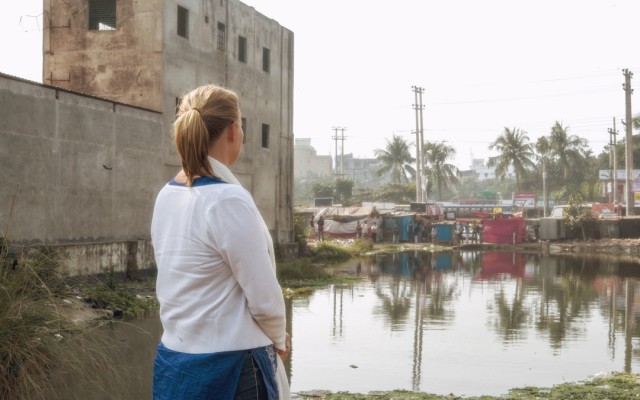On April 24, 2013 a giant factory in Dhaka, Bangladesh manufacturing garments exclusively for consumption in the west collapsed due to it being overcrowded and built unsafely. Over 1100 people died that day. There is just an empty space there now, with a small pond where survivors and families of those lost are cultivating fish. But its a stark reminder of how badly it can go wrong, when worker safety is not as high a priority as cheap product… No one knows better than these two blokes in the picture below, between them they pulled out 70 living and 36 dead bodies.
two blokes who rescued LOTS of people
Remember the good old days??
The days when we used to buy clothes seasonally, and they were made to last so that you could wear them for a few years? And no one thought anything of it if they saw you in the same outfit more than once? Well now we want to buy something new every week, and we don’t mind if it’s poorly put together or shrinks in the wash because we will probably throw it away after 3 wears. ‘Fast fashion’ has become the new norm in buying clothes.
I won’t comment on the environmental impact that this has (important but not my circus), but it does impact the working conditions of the guys who make it for you in places like Bangladesh. They have to make high volumes of clothes at fast turn around rates, working very long hours. And given the squeeze for low prices, they are paid very low wages. When I went there to see the factory site, a whole crowd gathered to tell me all about it
We are not powerless
Our buying patterns shape the way that corporate buyers work with these guys. We as consumers need to pressure the brands we buy from to provide transparency in where the garments come from, who made them, and whether the workers are paid a living wage. A living wage is essentially a local calculation of what workers need to earn to buy enough food to maintain their health, for shelter and for clothing.
I asked them ‘What can we do?”
You know what they told me? They said ‘Don’t buy your clothes from somewhere else. We need these jobs. But it is high time we made these clothes for you with dignity. We need a living wage, and we need you to rise up and demand from the guys you buy your clothes from to pay us a living wage, to ensure that the manufacturers that they are buying from provide safe working conditions and a living wage’.
The answer is not in boycotting countries where there are some ‘iffy’ labour practices. The answer is in rallying together to ask the retailers of our favourite brands where they source the materials from and asking them how thoroughly they check the conditions and wages for the workers and demanding they do better.
So to inform yourself, here is a fashion report that the Baptist World Aid recently produced, where they did an in-depth investigation into major fashion brands and gave them an ethical rating. You can read their ethical fashion report, here.
Take action – ask your clothing stores, where the stuff comes from. The more we ask the more the questions get pushed up the chain. You can also send your favourite brand a post card to campaign for their clothing to be slavery or human traffic free. They can be bought by from global campaigner, ‘Stop the Traffik’ here.

